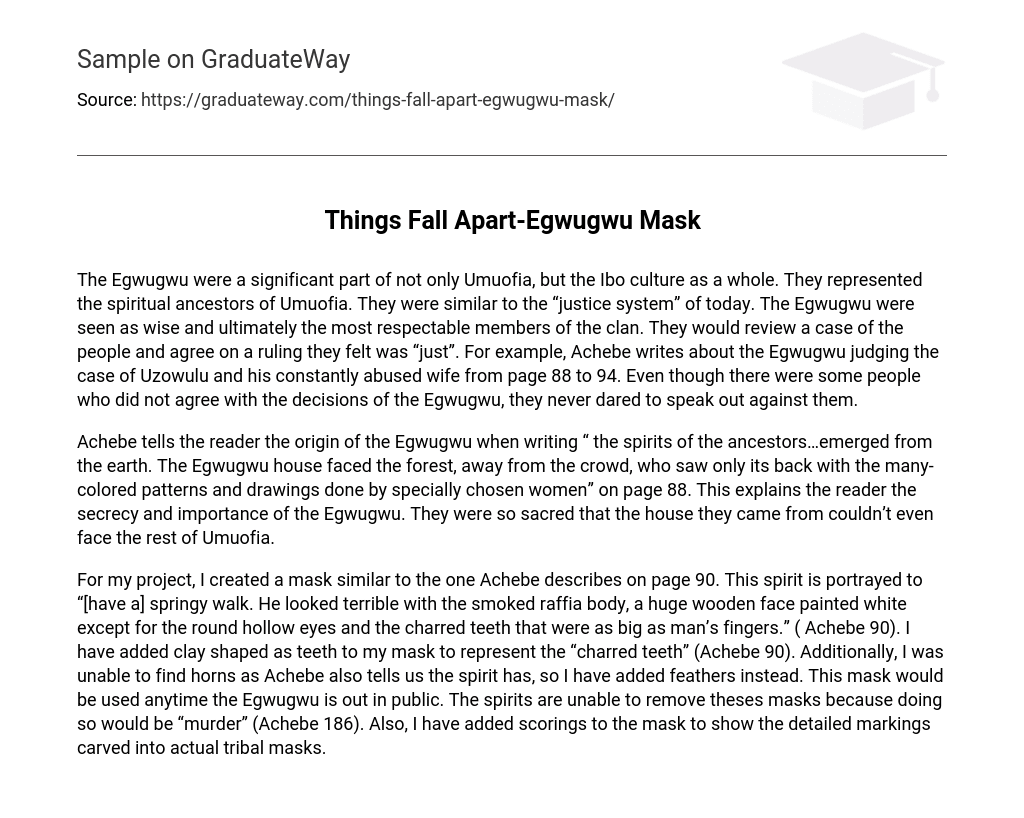The Egwugwu played a significant role in both Umuofia and Ibo culture. They served as the spiritual ancestors of Umuofia and functioned similarly to today’s justice system. Considered wise and highly respected, the Egwugwu would review cases and collectively determine a just verdict. Achebe gives an example of their judgment in the case of Uzowulu and his abused wife, discussed from page 88 to 94. While some individuals may have disagreed with the Egwugwu’s decisions, they were afraid to voice their dissent.
In his writing, Achebe informs the reader about the birth of the Egwugwu by stating that “the spirits of the ancestors…emerged from the earth.” On page 88, he describes the Egwugwu house as facing the forest, away from the crowd, who can only see its back adorned with intricate patterns and drawings by specially chosen women. This passage elucidates the secrecy and significance of the Egwugwu, as they were considered so sacred that their dwelling could not face the rest of Umuofia.
In my project, I created a mask that resembles the one described by Achebe on page 90. The spirit in the book is depicted as having a bouncy walk and a terrifying appearance, with a body made of smoked raffia, a large wooden face painted white except for the hollow eyes, and burned teeth as big as fingers (Achebe 90). To represent the charred teeth, I incorporated clay into my mask. However, I could not find any horns like the spirit has in the story, so I used feathers instead. This mask was intended to be worn whenever the Egwugwu were in public. The spirits are not allowed to remove these masks because it would be considered murder (Achebe 186). I also added scores to the mask to imitate the intricate markings found on authentic tribal masks.





